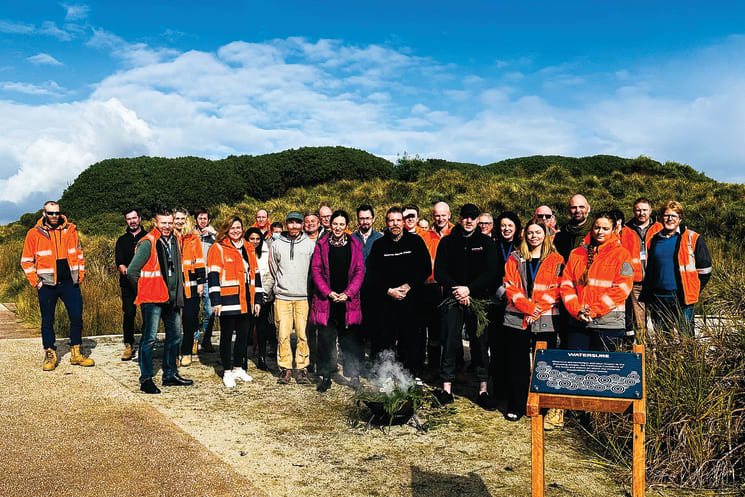
The Aquasure and Watersure team with Jordan Crugnale MP, Josh and Danny West from the Bunurong Land Council Aboriginal Corporation, at the celebrations for the 10th anniversary of the Ecological Reserve surrounding the Victorian Desalination Plant.
July marked the 10th anniversary of the Ecological Reserve surrounding the Victorian Desalination Plant.
Operated by AquaSure and WaterSure, the reserve has been transformed over the past decade from more than 200 hectares of farmland into a thriving sanctuary for native plants and animals.
Opened to the public in 2014, the State Government said the reserve has since become a cherished community asset - standing out as one of Victoria's largest land restoration projects with more than four million plants grown from seeds indigenous to the area since 2013.
Spanning 225 hectares, the reserve is a popular destination for walking, bird watching and horse riding with its environments and 127 native plant species enjoyed by locals, visitors and nature enthusiasts alike.
"It is a testament to the many who have restored this area supporting the health of our precious biodiversity and unique natural environments and to our local wildlife volunteer groups for their equally remarkable work in protecting and nurturing native animals," said Member for Bass, Jordan Crugnale.
"I really encourage everyone including our schools to head on out to immerse oneself in nature, walk and connect with the land and appreciate the millions of plants planted and marvel local animals have been given the best chance to thrive in the wild."
Ms Crugnale thanked Mark Bradbury and the team from ID Ecological Management "who have been exemplary in the plantings, restoration and management of the reserve".
The government said the reserve is used as a template for successful environment and restoration projects, regularly welcoming school groups to learn first-hand about the conservation work undertaken over the past ten years and how it can be applied to other degraded environments.
Wildlife conservation work continues across the reserve to conserve the health of habitats for native animals, supporting local populations of koalas, wombats, echidnas, possums, wallabies and kangaroos.





